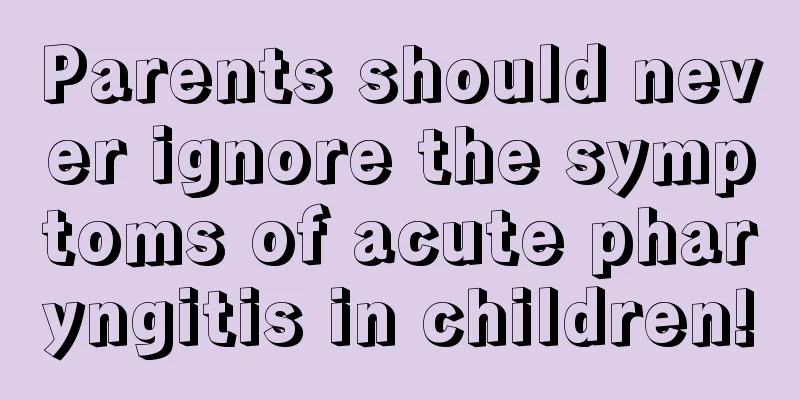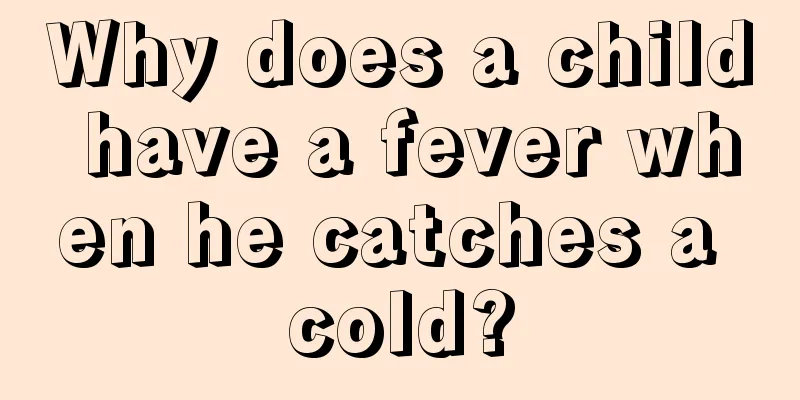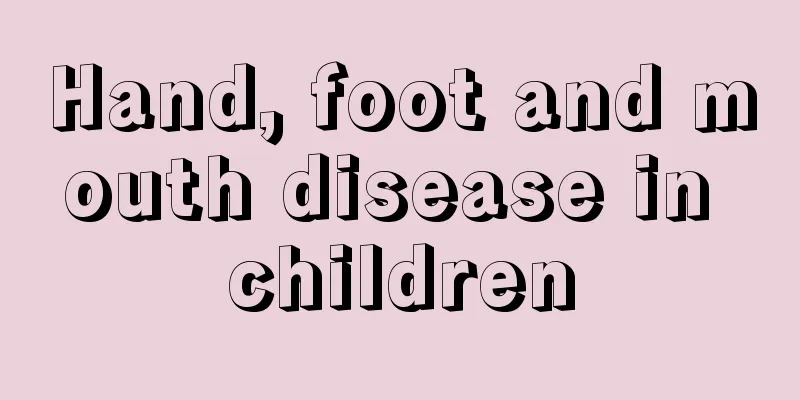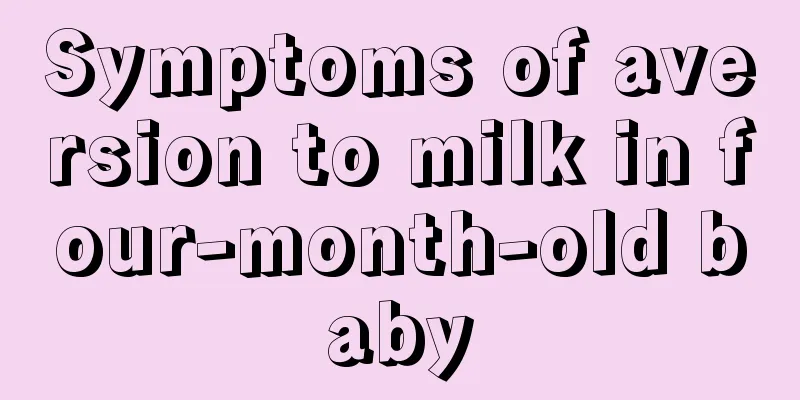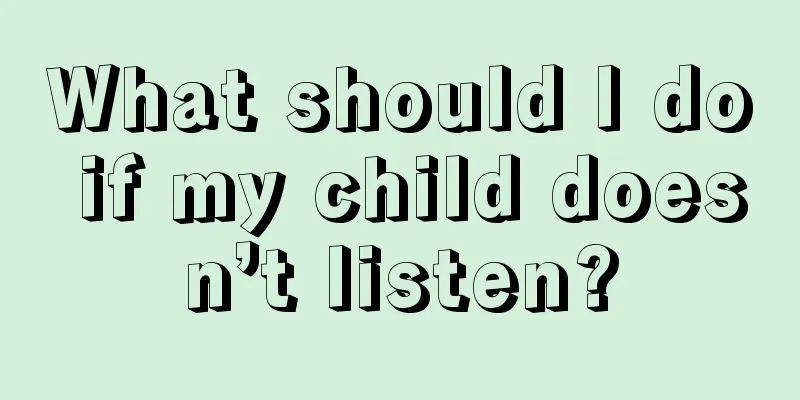What are the early symptoms of autism in children?
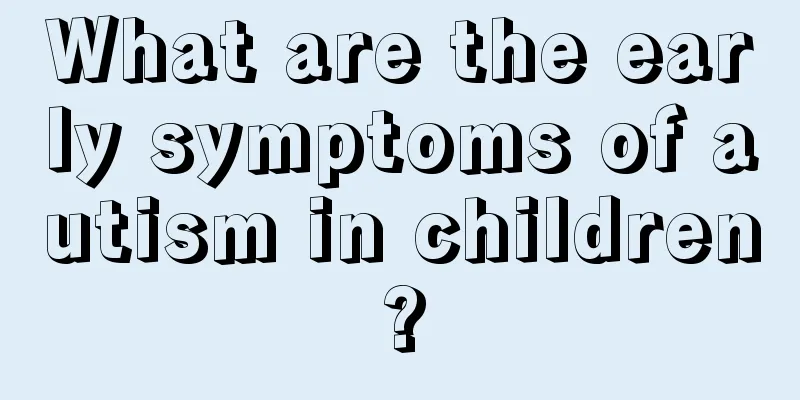
|
Every parent does not want their child to be sick, but some children happen to suffer from diseases that make their parents worry. Childhood autism is also called autism. In recent years, the number of children suffering from the disease has increased. So what are the early symptoms of autism in children? The impairments of most children currently diagnosed with autism are not as severe as reported in the early days, but their symptoms cover a wide range, including emotion, cognition, sociality, communication, autonomic nervous function, integrative function and adaptive behavior. DSM-IV places special emphasis on impairment of social and communication functions. The severity of autism varies greatly. The autism described by Kanner (1943) as occurring in early infancy was a very serious case with impairment of multiple psychological functions, but generally without delusions, hallucinations and loose associations, so it is difficult to link it to schizophrenia. Mild autism can have very mild abnormalities in social function, communication function and behavior, making it difficult to diagnose as a disease; it is more like a personality problem. Symptoms of autism usually appear after birth or in early infancy, but parents often fail to detect the problem in time and seek medical treatment in a timely manner. Generally speaking, the course of the disease tends to improve, but the speed of improvement is very irregular, sometimes fast, sometimes slow, and difficult to predict. Sometimes it may worsen due to external factors (such as other diseases) or unexplained temporary factors. 1. Typical symptoms (1) Social interaction disorder: Most children with autism show a lack of interest in people in infancy. They do not make eye contact with others and have a dull expression. When they are hugged, they do not show the corresponding posture and expression of expecting to be hugged, and even refuse to be hugged. When their names are called, they often have no response. At 6 to 7 months old, they cannot distinguish between close and distant relationships, cannot establish a normal attachment relationship with their parents, and have difficulty in establishing normal partnerships with children of the same age. They do not like to play with their peers, have no interest in watching games or the desire to participate, do not know how to play games and the rules, and even if they are forced to play with other children, they will not take the initiative to contact others and will not devote themselves to group activities. (2) Language communication disorder: The language development of patients lags significantly behind that of children of the same age. Some children with autism develop language functions before the age of 2 to 3, but then gradually decrease or even completely lose them. These children with autism and language regression have relatively good early language development, but their language damage is more serious after the onset of the disease, suggesting that there may be special biological causes. Patients rarely or even do not use language for normal interpersonal communication. They often express their discomfort or needs by crying or screaming. Their body language, such as nodding, shaking their heads, gestures, and facial expressions, changes significantly less than that of normal children of the same age. Children with autism often do not take the initiative to talk to others, do not maintain or raise topics, or just repeatedly dwell on the same topic and do not care about other people's reactions. They often do not use pronouns or use them incorrectly. Some children talk to themselves or hum, enjoying themselves. Their words are strange and monotonous, lacking in intonation and emotion. In addition, they may imitate language or repeat language in a stereotyped way, such as imitating what others have just said or a few words they heard on TV a few days ago. (3) Narrow interests and stereotyped behavior patterns: Patients are not interested in activities, games, and toys that normal children are keen on. Instead, they like to play with non-toy objects, such as very sharp objects, waste bottle caps, broken wood blocks, or observe fast-spinning electric fans. They can often play with these objects for dozens of minutes or even hours without getting bored. They have peculiar ways of playing with these objects that normal people cannot understand and they never get tired of them. Some children cannot help but touch everything with their fingers or put it in front of their noses to smell it repeatedly, or they often clap their hands, beat their chests, turn in circles, lick the wall with their tongues, stamp their feet, etc. They often stubbornly demand that their living environment and daily activity routine remain unchanged, such as having to eat the same meals every day, use the same toilet, wear the same clothes all year round, and take the same route when going out. If these activities are stopped or the behavior pattern is changed, the patients will express obvious unhappiness and anxiety, and even show rebellious behavior. The above is an introduction to the early symptoms of autism in children. I believe that after reading this article, parents will be able to determine whether their children have autism. It is more important for parents to pay more attention to their children's inner lives. |
<<: What should I do if my baby does not sweat after taking antipyretics?
>>: How to treat children with cold, fever and convulsions
Recommend
How to make chicken liver better for babies
Young babies are in the stage of symptom developm...
How long does it usually take for a child's fracture to heal?
Many parents of children whose fractures have occ...
What should you pay attention to when children have hangnails on their hands?
In fact, it is very common for children to have h...
How much sleep does a 2-year-old baby need?
The healthy growth of the baby is the expectation...
Treatment of fever and cough in children
Children's physical health is what parents ca...
What is the cause of the baby's snotty stool?
When a baby has snotty stools, it generally means...
Are pacifiers good for babies?
A pacifier is actually an item similar to a nippl...
What are the key points of caring for a four-month-old baby?
Almost every parent is a first-time mother or fat...
What to do if the baby's lips turn purple when crying
What should you do if your baby cries and his lip...
How to pay attention to children's eye hygiene
In recent years, many children have been found to...
What to do if your child has eye pain
If a child has eye pain, it must not be ignored. ...
How to treat children after appendectomy surgery?
Generally, parents think that their children will...
What to do if a 3-year-old child has a high fever and convulsions
Fever is a common disease in children, and most o...
What causes newborns to have difficulty breathing?
With the arrival of a little life, it not only br...
What should I do if my child has a fever after vaccination?
Getting vaccinated is a very good thing, as it ca...
